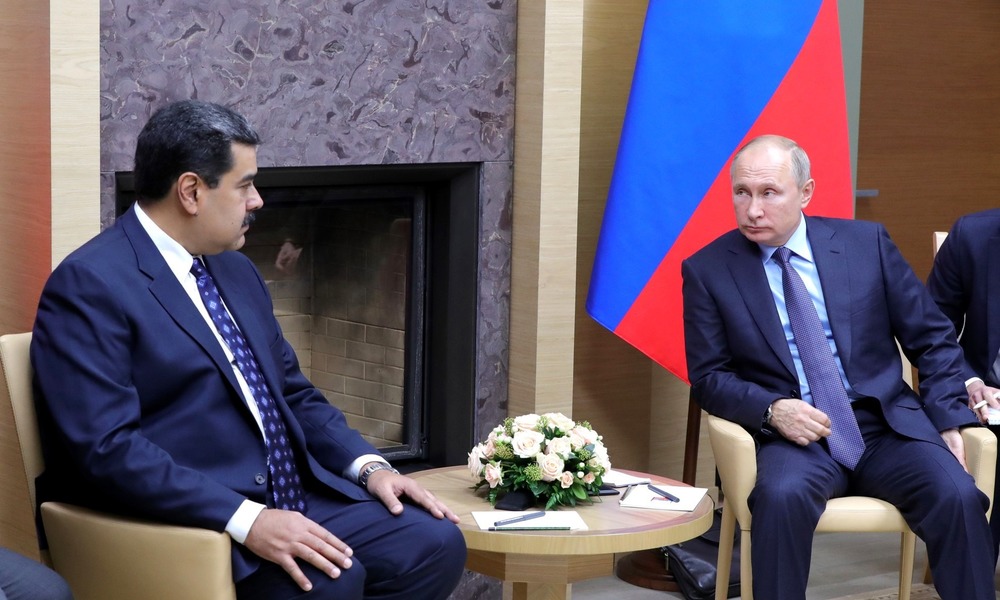RUSSIA MONITOR
Date: 28 January 2019
Russia Supports Maduro Regime: Did Moscow Send Private Mercenaries?
It is no secret that Russia and Venezuela have been tied by a strategic alliance. Moscow actively backed subsequent regimes of Chavez and Maduro, considering the latter its top ally against the United States in the western hemisphere. Caracas has been granted billions of dollars for making further concessions for Russia’s state-run oil giant Rosneft, providing support for such regimes like Cuba and promises to develop military cooperation. Nonetheless, the deep crisis in Venezuela may now pose a serious threat to the Maduro regime, which would be a geopolitical disaster for Russia, not to mention Moscow’s financial losses. This seems to explain the Kremlin’s recent diplomatic activity, aimed essentially at supporting Maduro. Yet there emerges a question whether Russia has actually deployed several hundred of private contractors to defend the regime. This is a questionable issue while there is no evidence for their presence on Venezuelan soil.

Russia, which has provided Venezuela with a dozen loans worth a total of several billion dollars, recently expressed its strong support for Nicolas Maduro, unequivocally considering him the state’s only legal leader. In addition, the Kremlin warned Western countries, including the United States, against an attempted “coup” in the Venezuelan capital city. It is mostly Washington that backs Juan Guaido, urging other states to throw their support behind Venezuelan opposition leader as the country’s head. It is yet not known whether Moscow provides Maduro with any other forms of support, in addition to political and economic activity.
Up to 400 Russian mercenaries could have been deployed to Venezuela, Reuters agency informed on January 25. They were to join the first contingent, reportedly sent to Caracas in May 2018. Among them are allegedly private military contractors of the Russian private military company Wagner whose main aim is to beef up security of President Nicolas Maduro. A spokesperson for the Kremlin denied news reports that Russian private military contractors were in Venezuela to protect Maduro. So far, any reports on the Wagner Group’s activity in a given country were closely linked to the wish for guaranteeing safety for Putin-allied local leaders as well as that for protecting Russia’s business interests, including those of Yevgeny Prigozhin. Both of these factors occurred simultaneously in Syria, Sudan and the Central African Republic. Therefore it is essential to ask a question whether Maduro needs to be protected by the Russians or whether there are any Russian industrial facilities on Venezuelan soil that would require such protection.
Yet in both cases it is difficult to come up with any obvious justification for the decision to deploy Russian private contractors to Venezuela. First, Maduro does not seem to have any problems to take care of personal protection. In addition, he enjoys the support from Venezuelan army, referred to as the third largest in the region, giving way only to the Brazilian and Colombian ones. Not to mention the Venezuelan National Guard, an elite military formation which consists of 23,000 well-equipped servicemen. It is mainly tasked with thwarting protests. Secondly, Russia does not dispose of any facilities on Venezuelan soil – unlike Syria or Sudan – where such a guard would be needed. All oil projects developed with the participation of Russia’s Rosneft are managed by Venezuelan state-run firm PDVSA.
Naturally, it cannot be straightforwardly stated that such information was fake. It can, however, be assumed that Maduro is not quite sure about the loyalty of his army of praetorians. The report that had been officially denied by the Kremlin may appear to be true as Moscow, while sending its mercenaries to Caracas, may seek to symbolically emphasize its commitment to defend the Maduro regime. Over the past few weeks, Russian state aircraft increasingly traveled to South America, making flights between Venezuela and Cuba. Also, it cannot be ruled out that Russia is currently preparing a potential scenario that would take into account evacuating Maduro and other regime-related politicians – along with their fortunes – to Cuba.
All texts published by the Warsaw Institute Foundation may be disseminated on the condition that their origin is credited. Images may not be used without permission.














